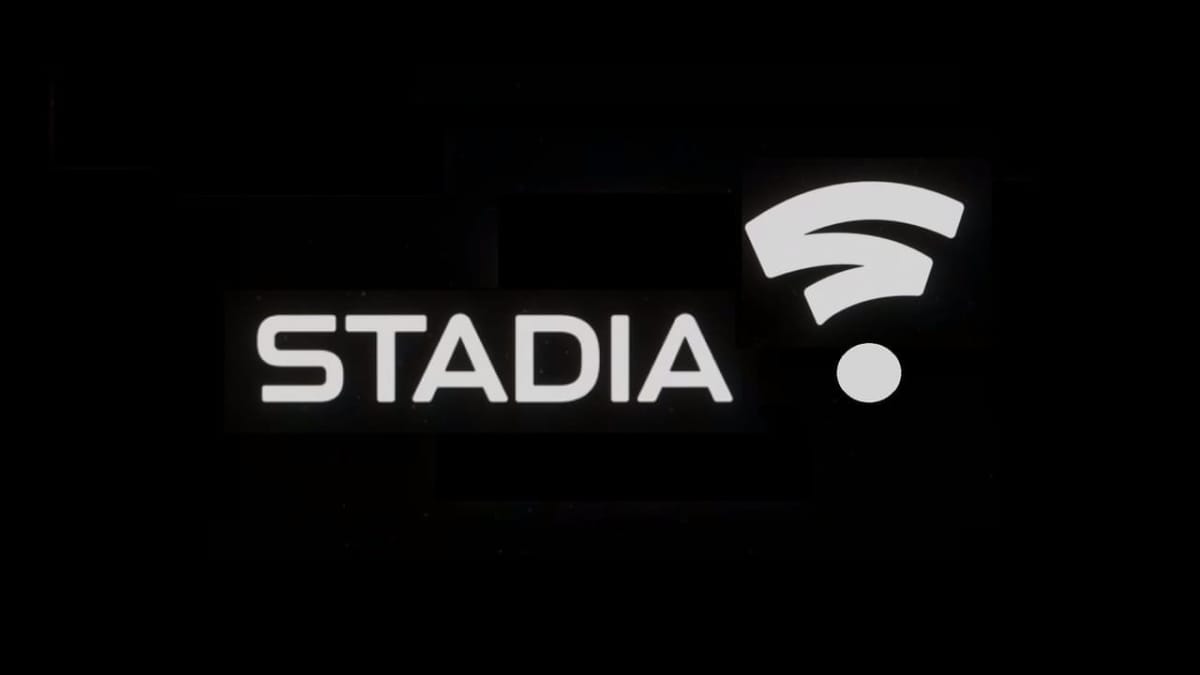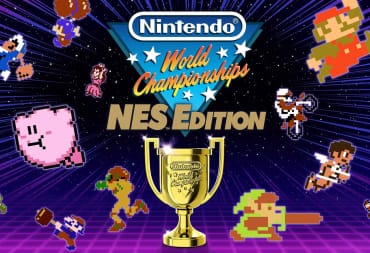This week Google announced their debut to the home video game market. Not with a new entry into the hardware market and Google console but instead announcing Stadia. Stadia is a streaming service that is meant to allow on-demand access to video games wherever and whenever. One of the benefits is that Stadia is meant to run on hardware that you already own. If you missed the initial announcement, be sure to read about here for more information on Stadia. Google also showed off some of the peripherals and features you can expect to hear more about.
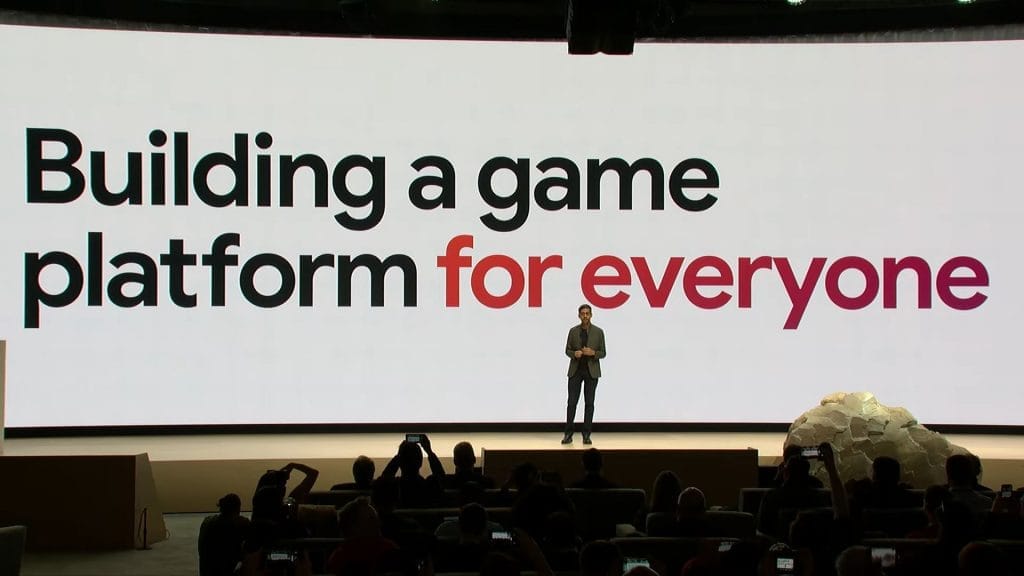 While we now know what Stadia is there's still plenty of questions that have begun circling the internet. How will it work? What kinds of prices will we be expected to pay? What makes this better than any current gen console? Will it work for me? These are all valid questions that Google will need to answer if it wants customers.
While we now know what Stadia is there's still plenty of questions that have begun circling the internet. How will it work? What kinds of prices will we be expected to pay? What makes this better than any current gen console? Will it work for me? These are all valid questions that Google will need to answer if it wants customers.
Connectivity
Many were expecting a console to rival Microsoft and Sony's offerings, but Google came out of left field detailing Stadia runs in the "cloud." Stadia's games are played remotely, allowing players to neglect the system requirements of a game. Any of these titles will launch on any spare Google Pixel, tablet, or device that runs the Chrome browser. What was interestingly omitted from the presentation is what kinds of download speeds will be required. Stadia is meant to be able to reach 4K resolutions and 60 FPS gameplay, and while we don't have a definitive required speed to have that quality, we can make some comparisons.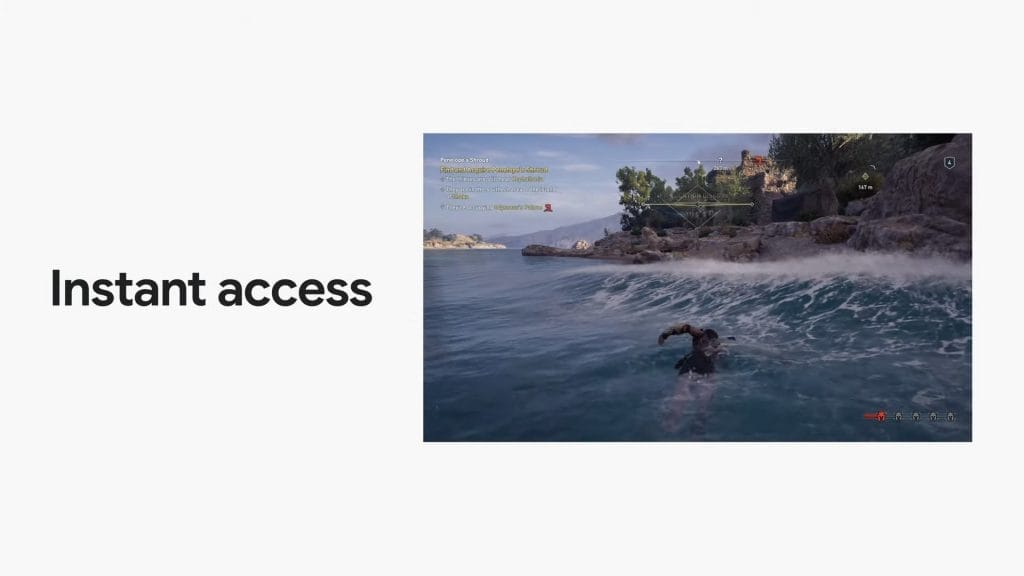 Our closest contender to Stadia is the PlayStation Now service. This allows players to stream PS2, PS3, and PS4 games to their PS4 or computer based on the old Gaikai service. PlayStation Now, per Sony, recommends a speed of 5 Mbps down but a 2015 report from Ars Technica performing stress tests showed a different story.
Our closest contender to Stadia is the PlayStation Now service. This allows players to stream PS2, PS3, and PS4 games to their PS4 or computer based on the old Gaikai service. PlayStation Now, per Sony, recommends a speed of 5 Mbps down but a 2015 report from Ars Technica performing stress tests showed a different story.
Our throttle testing started with a limit of 5 Mbps of download speed, which Sony recommends as the minimum "for an optimal gaming experience." At that bandwidth level, the service usually wouldn't even start; instead, a pre-launch connection test told us that the connection simply wasn't good enough for PlayStation Now. —Kyle Orland, Ars TechnicaThe report concluded that for a playable experience you should aim for 10 Mbps . Now that's for PS3 games mainly, so that's nowhere near the fidelity that we're hoping for from Stadia. What might not be as fair a comparison, but is the shining example for on-demand streaming, is Netflix. Netflix recommends for HD content that you maintain at least a 5 Mbps speed, but for UHD content you're looking at 25 Mbps down. In an interview with Kotaku, Phil Harrison, the head of Stadia, stated that in their tests for Project Stream back in October a consistent 1080p/60 FPS required around 25 Mbps. For Stadia "with innovations that we’ve made on the streamer side and on the compression side since then, when we launch, we will be able to get to 4K but only raise that bandwidth to about 30 megabits per second." 30 Mbps down is a lot when compared to PSNow's 10 Mbps at launch. In interviews with Kareem Choudhry, Microsoft's VP of gaming cloud, Eurogamer learned that Project Xcloud is aiming for single digit Mbps. Like with Stadia though, once this is out of a testing facility and usable at homes, there may be other factors that bump this up.
From the data centres we have near Washington we're seeing really good latency - less than 10 milliseconds that's being added by the traversal to the cloud. Frankly we find more latency in the Bluetooth stack, connected to an Android phone. Part of what I get so excited about, having Azure as our first party cloud, is that I'm able to place hardware, regionally, as close to users as possible. —Kareem ChoudhryPlenty of people living in populated cities in Stadia launch locations might be laughing at needing 25-30 Mbps down, but there are many who get by on a lot less. Looking online for average internet speeds, we can find all kinds of varying results. If we look at the Q2-Q3 2018 Averages for states from popular Speedtest.net, we see that the average ranges from Wyoming at 56 Mbps down all the way up to over 100 in other states. Comparing that to data collected over the same period from BroadbandNow.com, their highest average is 52 Mbps for New Jersey and Wyoming is at a measly 26 Mbps. Further conflict on this metric has come from Microsoft accusing the FCC of reporting numbers incorrectly in the draft of its "2019 Broadband Deployment Report." Defining Broadband as a connection of at least 25 Mbps down and 3 Mbps up, FCC states only 19.1 million Americans don't have Broadband. The FCC is patting itself on the back stating that it shows that their approach to broadband rollout is working but Microsoft tells a different story. In an open letter, Microsoft explained using their data that "162.8 million do not use the internet at broadband speeds."
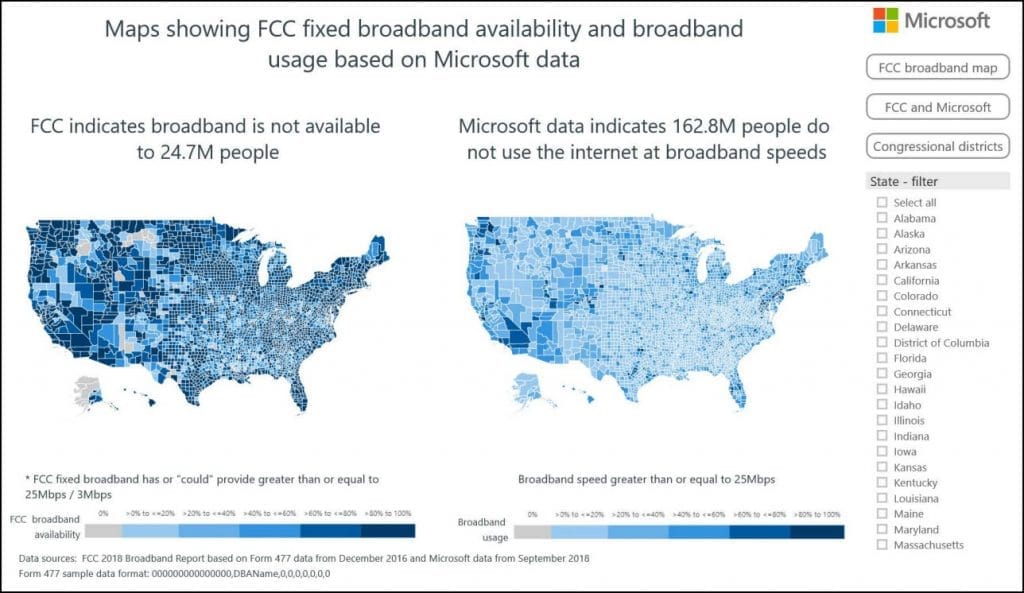
Pricing
Pricing might be the biggest concern on players' minds after the Stadia announcement. The idea of playing AAA titles on your phone is great but with an unknown payment model, we can't get too excited. Some hope it may be as simple as buying a game once and having digital access to it for life. However, players will be gaming on Google's hardware, and while you won't be dishing out for a new console, you're likely instead going to have a subscription cost. This is an understandable fee to pay as servers don't exactly run for free. This subscription model or even a subscription paired with another payment per game is likely where we're going to see Stadia settling.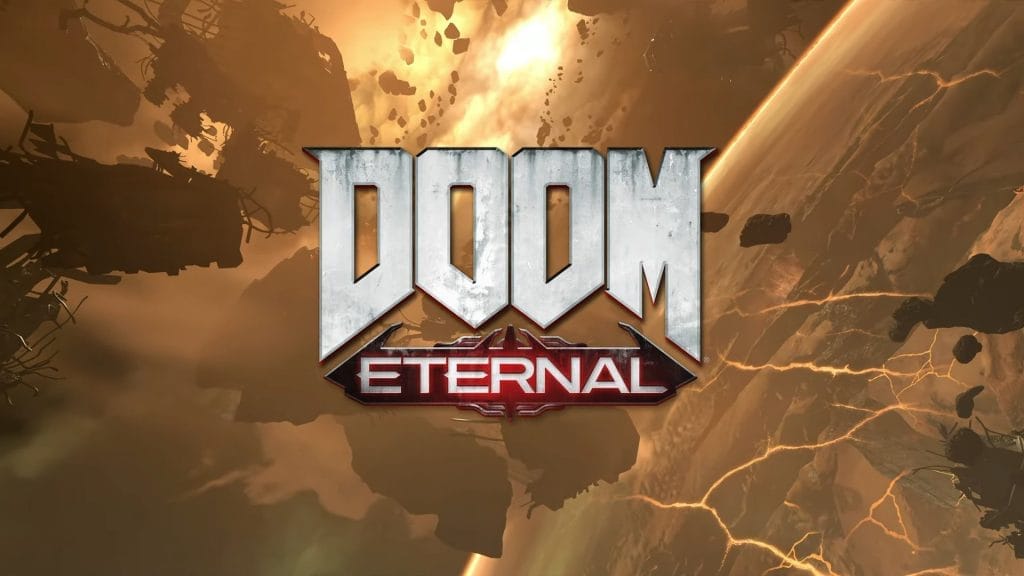
Library
It's crazy to think that when talking about how viable a new gaming platform will be, we're talking about what games will be available third. We already know we'll see DOOM Eternal, Rime, and Assassin's Creed Odyssey, but with the list of partners confirmed for Stadia, we can expect some big titles. Stadia Games Studios was also publicly announced joining Ubisoft and Dylan Cuthbert's studio as creators planning on releasing titles for Stadia. These are some real heavy hitting games and shows a big push from Google to get some hits, but they're also all multiplatform releases. Like with any console or platform, what games are available to you will be a big make or break moment. The games that we have seen so far are big name titles. Plenty of players have been excited or are excited about these games. For gamers who already own a current gen system, what will be the reason they choose to get it for Stadia? There's a lot that goes into making the decision of where you want to play a game when it releases or which new platform you'll adopt: graphical capabilities, available or exclusive games, where your friends play, and what brand you have a history with. Stadia doesn't need to worry about graphics being built on a cloud engine and Jade Raymond leading Stadia Games will provide exclusives, but there's no word yet on when that information may be coming. They need to work on incentivizing players to decide that Stadia is worth it.
Digital rights and who "owns" a video game will also come further into a grey area with Stadia. When watching Netflix, you view a movie or series and then you hope it doesn't delist. What will happen if you've purchased a game through Stadia and due to a license agreement you now have no way of getting it back? The Xbox and now even PlayStation offer subscriptions with the option for an offline gaming session, but if it's all online, then who knows if it is going to make the distance or become a flash in the pan.
Like with any console or platform, what games are available to you will be a big make or break moment. The games that we have seen so far are big name titles. Plenty of players have been excited or are excited about these games. For gamers who already own a current gen system, what will be the reason they choose to get it for Stadia? There's a lot that goes into making the decision of where you want to play a game when it releases or which new platform you'll adopt: graphical capabilities, available or exclusive games, where your friends play, and what brand you have a history with. Stadia doesn't need to worry about graphics being built on a cloud engine and Jade Raymond leading Stadia Games will provide exclusives, but there's no word yet on when that information may be coming. They need to work on incentivizing players to decide that Stadia is worth it.
Digital rights and who "owns" a video game will also come further into a grey area with Stadia. When watching Netflix, you view a movie or series and then you hope it doesn't delist. What will happen if you've purchased a game through Stadia and due to a license agreement you now have no way of getting it back? The Xbox and now even PlayStation offer subscriptions with the option for an offline gaming session, but if it's all online, then who knows if it is going to make the distance or become a flash in the pan.
Competition
When you're already not sure what's going to make you play a game on Stadia vs PC or Xbox, then when you know that there's also some feature overlap it becomes even more difficult. At the moment, PlayStation 4 gamers who have a PS4 can stream to their computer, iOS, or Xperia device locally or over Wi-Fi. If you subscribe to PlayStation Now, you can stream directly to your PS4 or to a PC any game from the online catalog. Xbox owners have local streaming, and Xbox continues to talk about Project Xcloud. This will allow you to stream Xbox games to any device including mobile phones, laptops, tablets, and TVs. A new update to the Xbox Display Mirroring app can even allow you to play PC games on your TV.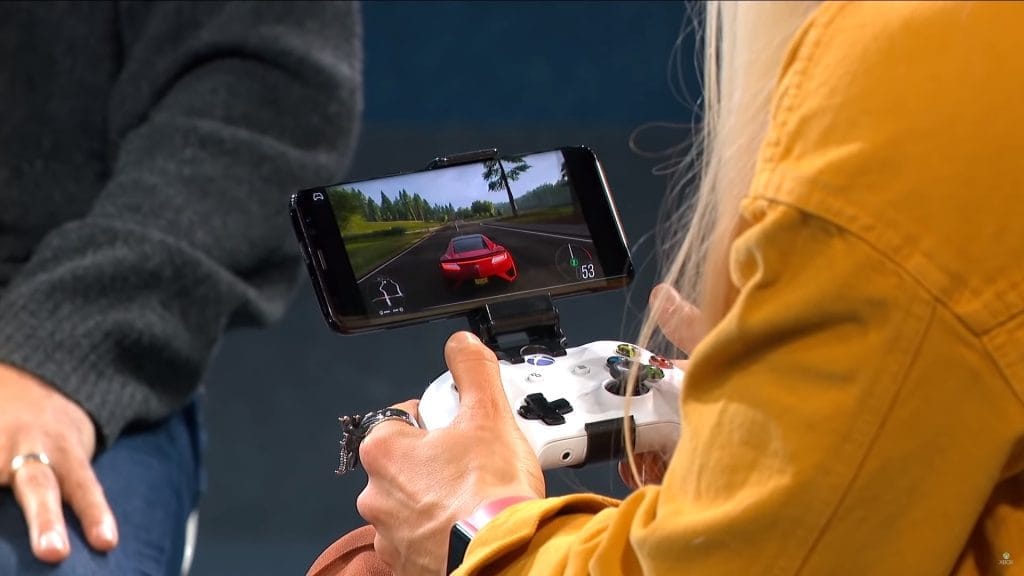
Features
There are a few features that are only available on Google's Stadia platform. Crowd Play and State Share allow you to jump straight into a streamers game to play with them and to get launched into the exact save state that a streamer is playing. Much like the rest of Stadia, it seems that there are ideas that work on paper but when put into practice you immediately see the worry. Crowd Play would allow your friends to join in a multiplayer game with you, much like how normal friends lists currently do. This feature was marketed for streamers as a way to get more integration with their viewers. In a world of stream sniping or swatting, the option to freely welcome griefers into your games doesn't seem like a well thought out one. If anything, platforms have now been working to secure streamer exclusion allowing for longer feed delays.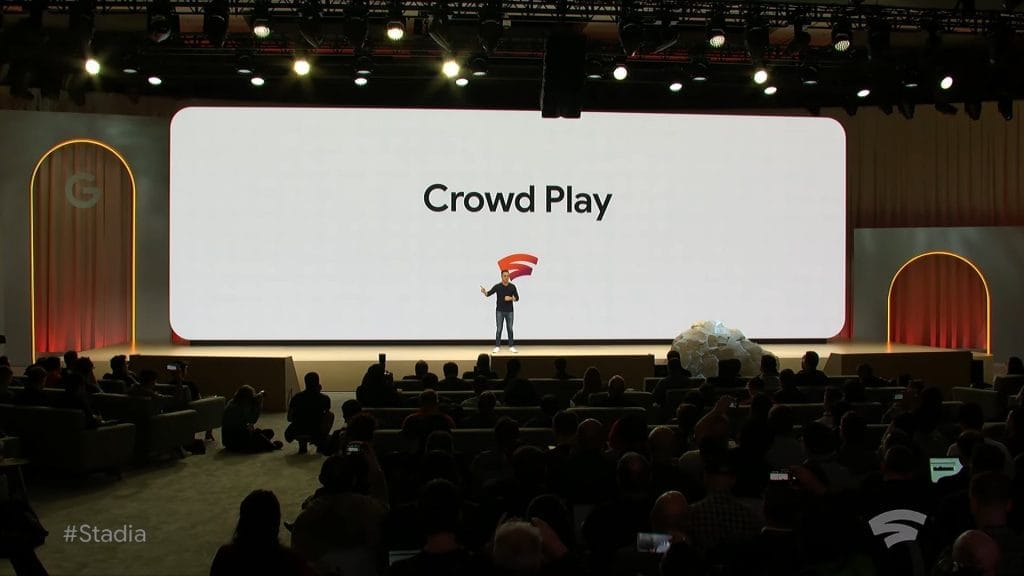
Stadia brings talks of powerful computers capable of playing any game at its highest level to any device you can get an internet connection on. From mobile phones to TVs, you'll be able to get your games regardless of hardware. Unfortunately, important factors such as its library and actual connection speeds people have access to are huge hurdles. With no exclusives details, connection speed revealed like pulling teeth, and still no huge reason for picking Stadia over another platform, it's impressive that Stadia does so much but still doesn't seem to have an audience. What were your thoughts on Stadia? Do you have the network to run it? Do you think I'm missing the target on who this is for? Let me know in the comments below
Have a tip, or want to point out something we missed? Leave a Comment or e-mail us at tips@techraptor.net
